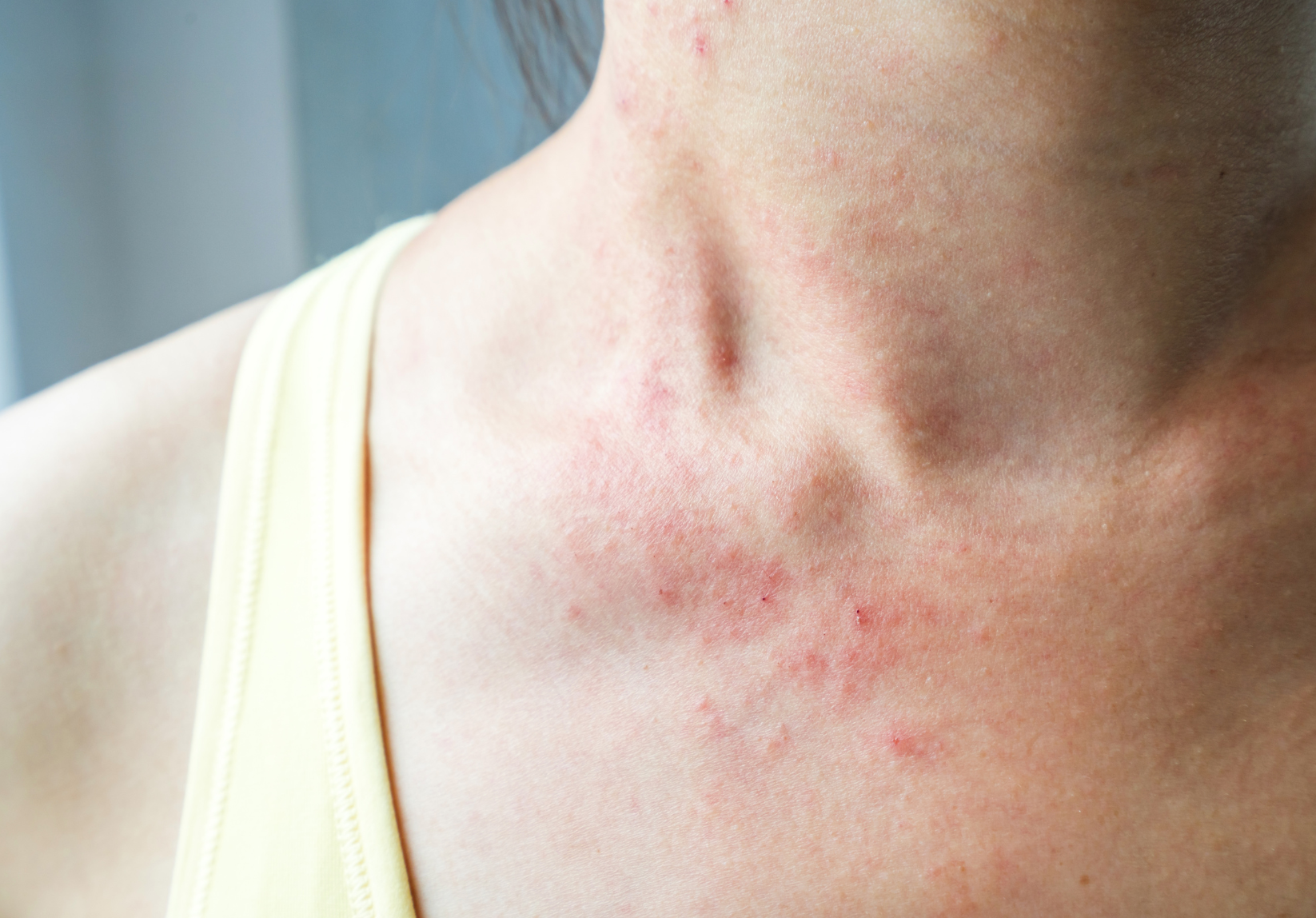
5 Proven Ways to Manage Eczema Flare-Ups
Eczema, or atopic dermatitis, is more than just a skin condition — it’s a daily battle with itchiness, redness, and discomfort. To the uninitiated, it may seem like a mere rash, but to those who live with it, eczema can be an unrelenting nuisance that affects everything from sleep to self-esteem.
The good news is that there are effective strategies that can help calm eczema flare-ups and create a buffer against future episodes. This comprehensive guide breaks down five evidence-based methods that can significantly improve the management of eczema symptoms, providing a path to greater comfort and well-being.
Understanding Eczema: The A to Z of Atopic Dermatitis
Before launching into the solutions, it’s important for eczema warriors to have a clear understanding of their nemesis. Atopic dermatitis is a chronic and inflammatory condition of the skin, often linked to other atopic diseases like asthma and hay fever. It’s characterized by intensely itchy patches of skin that can occur anywhere on the body but are most common on the face, at the bends of the elbows, behind the knees, and on the hands and feet.
The exact cause of eczema isn’t fully understood, but it’s thought to be a combination of genetic and environmental factors. Triggers can vary widely, but common factors include dry skin, irritants, stress, and allergic reactions to certain foods, fabrics, or other substances.
For many, eczema is a lifelong condition with symptoms that wax and wane. Finding the right approach to managing these symptoms can bring about significant relief and a more proactive response when flare-ups occur.
The Five Pillars of Calming Eczema
Pillar 1: The Moisturizing Miracle
One of the simplest yet most crucial elements of eczema management is ensuring the skin is well-hydrated. Moisturizing on a regular basis — at least twice daily — is essential to supplement the skin’s natural barrier, which is often compromised in those with eczema.
Choosing the Right Moisturizer
Opt for thick, ointment-based products or creams with a high oil content. These tend to be more effective than lotions, which have higher water content and can actually exacerbate dryness.
Moisturizing Techniques
After bathing or showering, pat the skin dry gently and apply moisturizer while the skin is still slightly damp to lock in the moisture. When applying to the face or body, use gentle, downward strokes to avoid irritation.
Maintain A Skincare Routine
Consistency is key. Developing a daily skincare routine that incorporates moisturization can help keep flare-ups at bay. Remember, not all moisturizers are created equal, so it may take some trial and error to find the perfect match for your skin type.
Pillar 2: Bathe Wisely
The right bathing technique can soothe the skin and avoid further stress on the body’s largest organ. Here’s how to bathe to benefit your eczema:
Use Lukewarm Water
Hot water can be a serious dehydrator, stripping the skin of its natural oils and leading to increased dryness and potential irritation. On the other hand, cool water can help calm the itch.
Limit Time in the Tub
Aim for short (5-10 minute) baths or showers to reduce exposure to potentially irritating elements like soaps and shampoos.
Be Selective with Cleansers
Choose gentle, fragrance-free soaps and detergents. Look for products specifically formulated for sensitive skin or those with eczema.
Pillar 3: Identify and Avoid Triggers
Eczema triggers can be quite personal, but some are more common than others. Here are the big ones to watch for:
Allergens
Pollen, pet dander, dust mites, and certain foods can exacerbate eczema. Consult with an allergist to identify the specific allergens that affect you and work on a plan to avoid or manage them.
Irritants
These can be everyday products like soaps, shampoos, laundry detergents, and household cleaners. Try to identify products that cause irritation and replace them with more skin-friendly options.
Stress
Easier said than done, but finding ways to manage and reduce stress can have a dramatic effect on eczema symptoms. Mindfulness practices, regular exercise, and good sleep habits are great stress-busters.
Pillar 4: Medication and Medical Management
Sometimes, eczema can’t be entirely managed with lifestyle changes alone. Medications and the advice of healthcare professionals are critical in many cases.
Topical Steroids and Anti-inflammatories
These are the primary treatment for controlling flare-ups and can be very effective at reducing the itching and inflammation of eczema.
Oral Medications
In severe cases, physicians may prescribe systemic medications to manage eczema, including antihistamines to help control the itch or oral steroids for short periods of time.
Biologics
These newer medications, given by injection or infusion, target specific areas of the immune system that play a role in causing eczema symptoms.
Pillar 5: Lifestyle and Dietary Adjustments
Some eczema sufferers find that certain lifestyle changes can make a significant difference in their condition. These may include:
Identifying Food Triggers
Working with a healthcare provider or nutritionist to identify and eliminate common food triggers from your diet, such as nuts, dairy, or gluten.
Moisturizing from the Inside Out
Staying well-hydrated by drinking plenty of water can help maintain moisture throughout the body, including the skin.
Supplements
Some studies suggest that certain supplements, such as probiotics and fish oil, may help manage eczema symptoms. Always talk to your doctor before starting any new supplement regimen.
Charting Your Course to Calmness
Eczema can be an unpredictable and sometimes frustrating condition, but with a comprehensive approach that combines knowledge, medical advice, and lifestyle changes, the itch can be managed. Each person’s eczema is unique, so what works for one individual may not work for another. The key is to stay informed, stay proactive, and be patient as you find the best strategies for your skin.
If you’re struggling with persistent or severe eczema, don’t hesitate to reach out to a dermatologist or allergist. These professionals can provide personalized guidance and may be able to offer new treatments that are continually emerging in the field of eczema research.
In the meantime, focus on the basics: moisturize diligently, bathe carefully, steer clear of triggers, and explore all the resources at your disposal. Managing eczema is a comprehensive endeavor, but the rewards of smoother, itch-free skin are more than worth the effort.
Disclaimer: The content shared on our blog is purely for educational and informational purposes and should not be taken as professional medical advice. We always encourage our readers to consult with a qualified healthcare professional for any health-related queries and to prioritize their guidance over the information provided here. In case of a medical emergency, it’s crucial to call 911 or visit the nearest emergency room immediately.
For your convenience, our blog may include links to external websites. Please note that visiting these third-party sites is at your own discretion and risk, and you’ll be subject to their own usage policies. The Dermatology Collective, along with any contributors to our blog, does not endorse or guarantee the accuracy of the information found on any linked external websites.
Engaging with our blog does not establish a patient-doctor relationship. If you’re interested in professional medical advice or interventions, we recommend reaching out directly to a healthcare provider. Should you wish to schedule an appointment with a healthcare expert, please feel free to contact our office at (626) 240-2020.


Leave a Reply